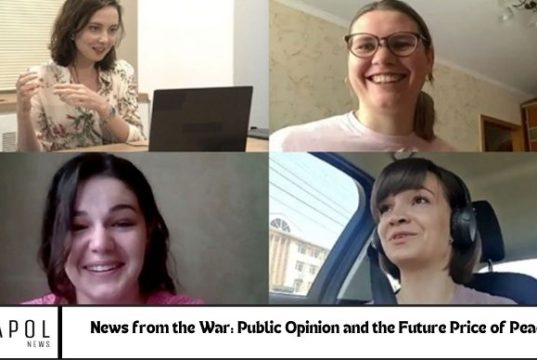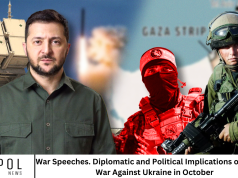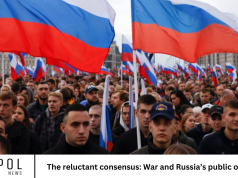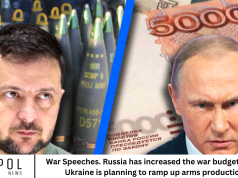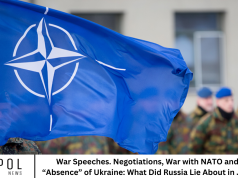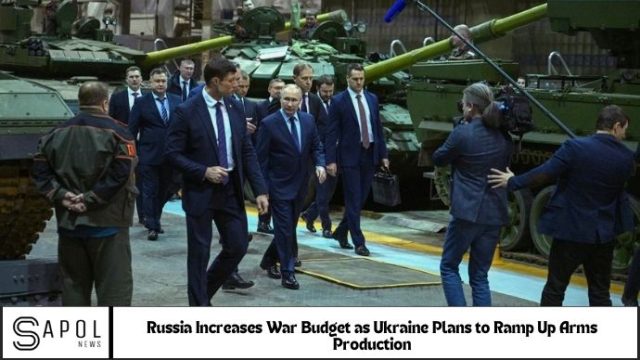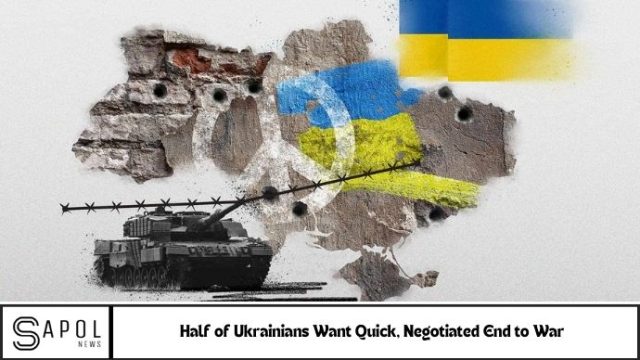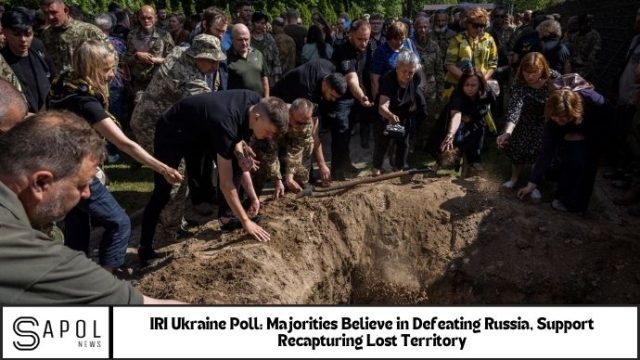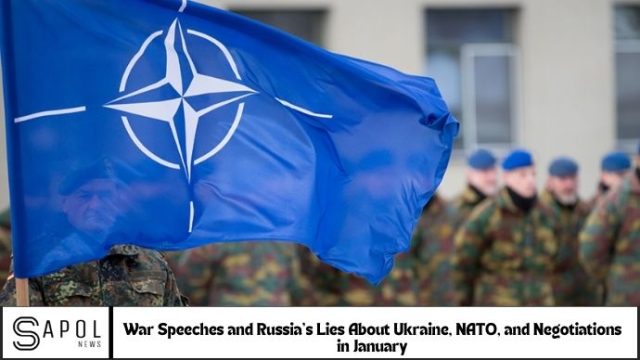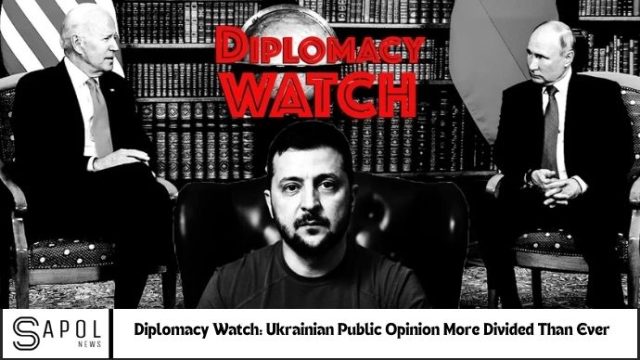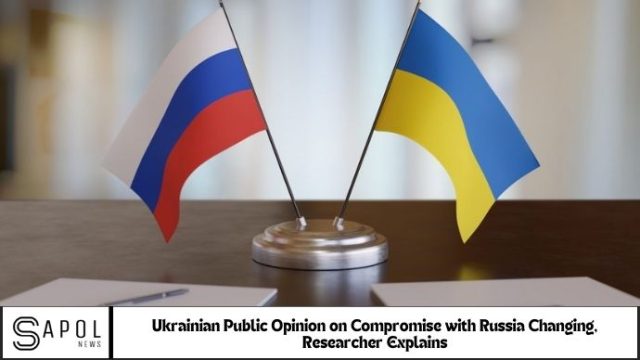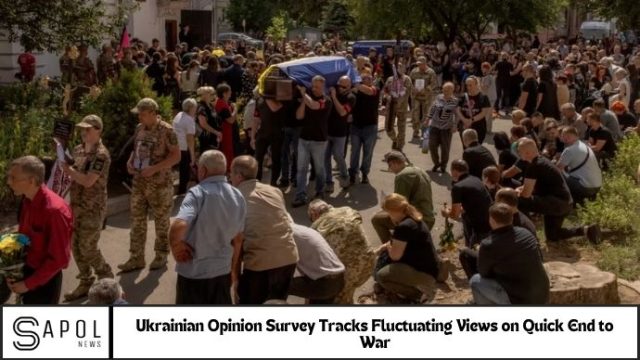Russia Increases War Budget as Ukraine Plans to Ramp Up Arms Production
Russia Increases War Budget as Ukraine Plans to Ramp Up Arms Production Last week, from September 25 to October 1, Ukraine unveiled its initiative to form the Defense Industries Alliance, aimed at bolstering weapons production. Meanwhile, Russia continues to pursue its imperial ambitions, threatening to expand its territory, with plans to allocate over a third of its federal budget to fund the ongoing war.
Despite a mounting national debt, Russia has managed to sustain its war efforts by circumventing sanctions through third-party companies that facilitate the import of military goods. While Ukraine’s allies are working to prevent these workarounds, enforcement of sanctions against Russia demands greater attention and the development of strategies to tighten restrictions long-term.
In an effort to strengthen its defense, Ukraine has also focused on enhancing air defense capabilities. NATO Secretary General Jens Stoltenberg made a surprise visit to Kyiv on September 28, where he met with President Volodymyr Zelensky to discuss Ukraine’s Euro-Atlantic integration and the provision of military support, including air defense systems in anticipation of Russian attacks on Ukraine’s energy infrastructure.
Russia’s Increased War Budget: A Sign of Long-Term Commitment
Russia’s decision to boost its war budget demonstrates its determination to continue fighting despite international sanctions and internal economic pressures. The Russian government has allocated additional funds for military operations, which is likely to extend the duration of the conflict. In recent years, Russia has faced increasing economic strain, but President Vladimir Putin’s government has prioritized defense spending to support its military agenda.
- Russian War Budget Increase: The Russian government has increased its military expenditure by a significant margin, signaling its commitment to the ongoing conflict in Ukraine.
- Impact on Russia’s Economy: While this increase in military spending may bolster the war effort, it comes at a cost to Russia’s domestic economy, potentially diverting funds from critical infrastructure and public services.
This increase in military spending reflects Russia’s strategy of outlasting Ukraine’s resources and continuing to press on with its military campaign.
Ukraine’s Strategic Focus on Arms Production
On the other side of the conflict, Ukraine is not only focusing on defense but is also ramping up its arms production to meet the growing demand for weapons and ammunition. The Ukrainian government has made clear its intent to secure the resources needed to continue the fight, especially as it faces a well-funded adversary. This ramp-up in production is critical for maintaining momentum in the war and ensuring that Ukrainian forces remain well-equipped.
- Ukraine’s Production Plans: Ukraine is expanding its domestic arms manufacturing capabilities, focusing on artillery, ammunition, and other critical supplies.
- Self-Sufficiency in Arms: By increasing arms production, Ukraine aims to reduce reliance on foreign aid, giving it more control over its military readiness and response times.
This focus on arms production is essential as Ukraine seeks to maintain a sustainable defense capability, particularly in the face of an increasingly well-funded Russian military.
Economic and Strategic Implications for Both Nations
The increased war budgets for Russia and Ukraine have significant economic and strategic implications. For Russia, the additional spending is a clear indication that it is prepared for a prolonged war, but it risks further economic instability as resources are reallocated to defense. Ukraine, on the other hand, is making critical investments to ensure it can sustain its resistance efforts. By ramping up arms production, Ukraine aims to be less dependent on external arms suppliers, which can be crucial in times of global supply chain disruption.
Key Implications:
- Russia’s Economic Strain: Increased military spending could lead to further economic instability, impacting Russia’s long-term sustainability.
- Ukraine’s Self-Reliance: By enhancing arms production, Ukraine increases its ability to defend itself independently while reducing reliance on Western aid.
- Global Impact: The focus on ramping up production and increasing military budgets by both countries could have broader implications for global security and the arms industry.
The Future of the Conflict: A Prolonged Standoff?
With both Russia and Ukraine making significant adjustments to their war strategies, the future of the conflict remains uncertain. Increased military spending by Russia could prolong the war, while Ukraine’s focus on arms production is a clear sign that it intends to continue resisting as long as necessary. As the conflict continues, global powers may be forced to make difficult decisions about their role in providing support or negotiating a resolution.
Key Considerations:
- Prolonged Conflict: If both nations continue their current military trajectories, the conflict could drag on, resulting in even more destruction and loss of life.
- Diplomatic Pressures: As both countries ramp up military spending, diplomatic efforts to mediate peace may become more complex, as both sides grow more entrenched in their positions.
May you also like it:
Half of Ukrainians Want Quick, Negotiated End to War
IRI Ukraine Poll: Majorities Believe in Defeating Russia, Support Recapturing Lost Territory
War Speeches and Russia’s Lies About Ukraine, NATO, and Negotiations in January
Conclusion
As Russia increases its war budget and Ukraine ramps up arms production, both nations are preparing for a long and difficult conflict. These changes reflect the increasing militarization of the war and highlight the strategic moves each side is making to ensure continued viability in the face of ongoing challenges. The global community will need to carefully monitor these developments, as they could have profound implications for the conflict’s duration and the broader geopolitical landscape.
FAQs:
Why has Russia increased its war budget?
Russia has increased its war budget to sustain its military operations in Ukraine, signaling a commitment to prolonging the conflict.
How is Ukraine responding to the increased Russian war budget?
Ukraine is ramping up its arms production to reduce reliance on foreign aid and maintain its defense capabilities against Russia.
What are the economic implications for Russia?
The increased military spending could lead to economic instability in Russia, as resources are diverted from domestic needs to support the war effort.
How will Ukraine’s arms production help in the war?
By ramping up arms production, Ukraine can maintain its defense efforts, ensuring it is less reliant on external military supplies.
What could this mean for the duration of the war?
The increased spending by both Russia and Ukraine suggests the war could become a prolonged conflict, with both sides preparing for a long-term standoff.
How might the global community react to these developments?
The global community will likely face pressure to mediate peace talks, as escalating military commitments could lead to further instability in the region.

